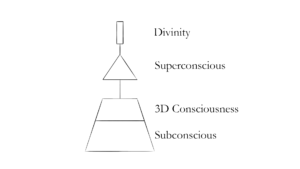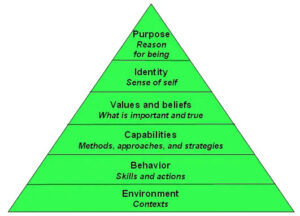
Ho’oponopono And Identity
Ho’oponopono comes in many flavours. We don’t know for certain how the old kahunas (Wisdom Bearers) of Hawaii perceived the world. My guess is that it was more animistically spiritual than what modern man senses today. We wouldn’t be so unkind to nature, were it not so.
Then, because the Hawaiian culture was verbal (until the Christian missionaries started to educate folk in Western ways) change and adaptation occurred with far more spontaneity. Some kahunas (no doubt) recognised that regular folk saw their world through the lens of duality. The people identified with ownership of land, sea and people dividing these into territories and tribes.
Although the kahunas knew this to be an error, just as a baker can only bake reasonable bread using the second grade flour, so they (the kahunas) would start their method of setting errors to right from the perception that people had (even when their perceptions were faulty). The aim was to eventually return people to a place where they might identify Divinity within themselves, ancestors and all other living things.
In due course ho’oponopono was diluted so it became seen as a problem solving approach, which although containing a spiritual component, was basically a form of family therapy. This is the second flavour of ho’oponopono.
There is also the Self Identity Through Ho’oponopono (SITH) method, which forms the third flavour. In this model the old Hawaiian structure of the human psyche is emphasised and the traditional names for the father, mother, and child get renamed as the superconscious, conscious (intellect) and subconscious minds.

In fact, these aren’t separated by clear boundaries (like we draw them in diagrams) but the boundaries fluctuate according to social context, and the influences of drugs including alcohol, and caffein in tea, coffee and elsewhere.
Meditation can also play a part in changing the nature of the boundaries.
Robert Dilts (elaborating some ideas of the anthropologist and polymath Gregory Bateson) taught me that the world is composed of many levels.

Spirit and Identity are near the top of a hierarchy. These are followed by beliefs, which affect our capabilities, which give rise to our specific behaviours, that in turn impact the social context.
Changing the social context will slowly work its way up this hierarchy, eventually impacting our beliefs and sense of personal identity. By this time our behaviour will have changed, as will our capabilities.
Unfortunately, such change is slow. In some cases, entire civilisations have been destroyed due to an inability to react to a change in water supply, as well as difficulties in settling disputes without fighting or going to war.
Fortunately, there is a faster way to affect the hierarchy. This involves seeing the table as not simply a rigid ladder (which is to be climbed, as in Maslow’s Hierarchy, which seems similar); rather it can be a rope ladder suspended from the helicopter of Divinity above (and containing it).
When you change your identity, all levels below must change.
In Self Identity Through Ho’oponopono (SITH) this is exactly what occurs. Ho’oponopono was never mean’t to simply be about chanting a mantra, or drinking blue solarised water. It’s about recognising that each of us is a tiny cell of Divinity and therefore an essential part of it.
Think about a cell in your body. It only can sense itself (and perhaps its nearest neighbours) yet it functions to protect a far larger whole (your body). Suppose one of your cells ‘decided’ to ‘do its own thing?’. Would it be able to continue to function as intended as it did so?
Cellular diseases (such as cancers) are exactly cells who are not being themselves. Dr. Ihaleakala Hew Len would speak of this in workshops.
Similarly, when you stop behaving in the perfect way you were born for (due to the effect of the Karmic Data born of recent socialisation and earlier conditioning) you will experience life bringing you painful problems or delightful temptations.
These attachments always bring with them a cost, because anything created out of our earthly planet must be temporary. The pleasure we experience doesn’t last (and fortunately neither does the pain as anyone who has ever visited a dentist can attest).
Changing your identity, however, changes everything. Once you release any desire to be anything other than who you are something wonderful happens. You become inspired, and can act from this place rather that the conditioning your ancestors, past lives, and your more recent temporal self.
Each of us has a choice, however. We may choose to follow the dictates of the Karmic Data carried within the subconscious (inner-child), or we can choose to follow the more creative inspiration from Divinity (of Allah, God, Krishna, Brahmin, Buddha or whatever you want to name it).
This is the root of our conscience. When we procrastinate we experience even more pain, yet when our Identity is understood as us being a part of (as well as containing) Divinity, our actions will be pure and steadily the Karmic-Data urging us to ‘think differently’ will abate.
Simply recognising who we are (our Identity) is the key to change. As Morrnah Nalamaku Simeona (the founder of SITH) declared ‘From an early age, (traditional) Hawaiians are taught to know who they are’.


You May Also Like

How To Clean For 24 hours Every Day

A Journey into Ho’oponopono: Discovering the Rhythm of Your Soul
